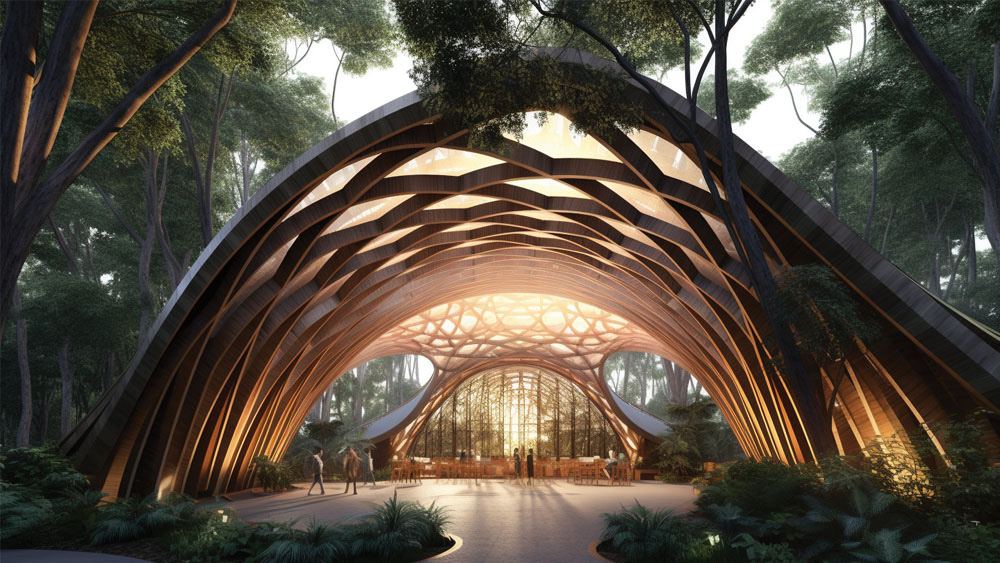
MidJourney created this “timber pavilion in nature” from prompts written by Digital Media Editor Magdalina Atanassova.
The recently published “The Future 100: 2024” report identifies 100 trends across industries — from culture to technology to travel and hospitality — that will shape the way people live and work this year and beyond. Each year, editors from VML Intelligence, the futurism, research, and innovation unit of global creative agency VML, offer thought-provoking observations for the annual trends report, but I’ve come to approach it with some skepticism. Some of their so-called trends seem so … out there. However, with generative AI exercising greater influence in both our professional and personal lives, some of those “out there” trends seem more attainable this year.
Such is the case with the “Imagination Stores” trend, defined as “new concepts for fantastical digital spaces” that some digital artists and brands already are creating for retail companies. For example, last year, Ralph Lauren introduced The 888 House, a virtual store with gorgeous desert views and luxury items, the forecast reports, and Bloomingdale’s created a virtual chocolate factory, where customers shopped a special collection and took part in a chocolate treasure hunt inspired by the “Wonka” movie.
In the events industry, creating exciting virtual spaces for online events became a necessity as the pandemic wore on as no one could meet face to face. Two examples we covered in Convene: The World Economic Forum created the Global Collaboration Village in the metaverse. Event design firm Kenes Group worked with the European Society of Paediatric and Neonatal Intensive Care to create a virtual world for the group’s 2021 conference. And numerous event-tech companies, like Allseated, made innovative virtual spaces for events part of their offerings.
Digital Media Editor Magdalina Atanassova demonstrated how futuristic event spaces can be created by working with gen AI tool MidJourney in our July/August 2023 cover story about AI. We published one of these spaces, the result of her prompt for MidJourney to illustrate a “timber pavilion in nature, from the inside, arranged for large conferences with a futuristic touch.”
I’m pretty certain no one has set out to build that pavilion IRL, but thanks to AI, the idea is a little less science fictional these days. Digital artist Benjamin Benichou, founder and CEO of social commerce platform Drop, has used generative AI to design futuristic Nike concept stores on Mars and atop Mount Everest — in virtual worlds, of course. He told VML Intelligence that “by collaborating with AI, we can reach new heights of creativity and push the boundaries of what’s possible.” He believes AI-generated ideas will nudge architects and designers to think differently about materials, shapes, and structures in our physical world.
Aside from creating more realistic — or fantastical — environments to keep attendees engaged in virtual meetings, generative AI could help designers of expo booths and sponsor activation areas to come up with innovative, experiential spaces that will wow participants at in-person events.
Curt Wagner is digital editor at Convene.
